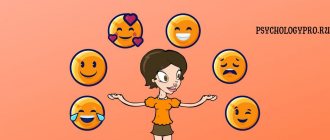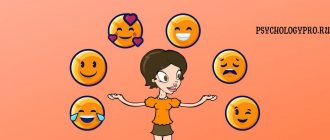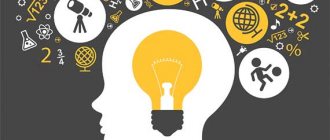According to Talentsmart, 90% of successful managers have a high level of Emotional Quotient. Workers with high emotional intelligence earn on average $29,000 more per year than those with low levels of emotional intelligence. And while some psychologists and business coaches consider EQ to be the solution to all problems, others criticize the idea for being unscientific. We figured out the topic together with the author of the book “Emotional Intelligence. Russian practice" and EQ development coach Alena Aleshina.
What is emotional intelligence?
Emotional intelligence (EQ) is the ability to perceive, control, and critically evaluate emotions. Both your own and other people’s emotions. Some believe that this is a unique innate skill, others say that emotional intelligence can be developed.
The ability to monitor and manage your emotions is an important skill both in everyday life and in your career. Also in the work environment, the ability to read other people's emotions and respond appropriately to them is highly valued. All of this is closely related to emotional intelligence and helps people build more successful careers (and lives).
Why is emotional intelligence so important?
Because EQ is used in different areas of life. Increased emotional intelligence can influence a person's success in school and work. It allows you to show leadership qualities, find contact with different people and lead them. And also convince them that you are right.
Steadily developing emotional intelligence has a beneficial effect on physical health. It helps to work through stressful situations and reduce their impact on the body.
Also, uncontrolled emotions can lead to the manifestation of psychological diseases. Most often, improper handling of your feelings leads to anxiety and depression. Developed EQ helps to avoid such consequences.
Having developed emotional intelligence, it is easier to understand other people, perceive their emotions, express sympathy, choose the right words, etc. Together, this helps to build closer and more reliable relationships with colleagues and loved ones.
Factors and reasons influencing its development
Emotional intelligence begins to develop in childhood. Psychologists say that special conditions are needed for its development.
- Example of adults. The child watches how adults express and name feelings and resolve conflicts.
- Analysis of situations that arise in the company of other children: how they support each other, argue, share toys, etc.
- Conversations with adults about what emotions are.
The better adults are aware of their feelings and needs and the more often they talk about them with the child, the better the child will be able to navigate his own.
Personal qualities also influence the development of empathy:
- sensitivity;
- speed of thinking;
- characteristics of temperament.
Some scientists say biological reasons are also involved. For example, the degree of development of parents’ emotional intelligence and the functioning of the right hemisphere of the brain.
Components of emotional intelligence
EQ is an entity made up of several individual skills. They are interconnected, but develop separately. They can also be present in one person, but in different proportions.
The human task is to analyze each component and regularly subject it to critical evaluation.
Communication skills
As I said above, emotional intelligence helps to establish and maintain contacts. This is especially important in professional activities when creating new business connections, communicating with partners, etc.
Also, developed communication skills help build more productive relationships between employees in the same office. They can ask for help and resolve any conflicts verbally.
A boss with a high EQ can raise serious issues and facilitate team discussion, achieving positive results from that discussion (for example, reaching a decision on an issue that concerns the entire office).
Motivation
This essence is closely related to EQ and is often included by experts as part of emotional intelligence. Motivation refers to the ability to set goals and achieve them.
Motivation is what creates the desire to perform certain tasks. A good motivator can motivate a whole group of people to complete even extremely difficult tasks.
Motivation also makes it possible to better cope with failures, assess the situation and return to work.
Empathy
The most important part of developed emotional intelligence is the ability to read other people's emotions and plan your actions based on how other people feel. Correct interpretation of emotions makes it possible to choose the best time to make difficult decisions. Employees with developed empathy are able to predict the reactions of others and avoid possible problems and conflicts.
Concern about other people's thoughts and feelings in the team creates a healthier and more humane atmosphere in the team. In modern society, no matter how trivial it may sound, this approach helps to increase productivity, reduce the overall level of stress and anxiety, and also reduce turnover due to a comfortable working environment for everyone.
Social responsibility
This skill gives a person the opportunity to recognize himself as part of a team and learn to work with other people. This type of responsibility obliges a person to be responsible for the decisions made and the overall result of the work. An important skill for those planning to take a leadership position.
Feeling responsible for the outcome of the activity, each employee will try to do the maximum so that the team does not “fail”. There will be no anchor employees who think that everything will be decided for them.
Ability to control and resolve conflicts
Another aspect of emotional intelligence that is highly valued in a professional environment. The ability not only to smooth over conflicts, but to resolve them, clearly understanding the causes and consequences.
Teams consisting of such workers show high efficiency in even the most difficult situations. Productivity increases, any destructiveness is transformed into constructiveness. Conflicts are perceived as a way to realize mistakes and become better.
Components of EQ
There are different methods for dividing emotional intelligence into its components. The Mayer-Salovey-Caruso model is considered the most accurate to date. It is also called the ability model. It has 4 components:
- Perception is the ability to recognize the emotions of others, as well as your own.
- Understanding is the ability to determine the cause of the appearance of certain emotions, their connection with a person’s thoughts, as well as predict certain states depending on external events.
- Utilization is the unconscious ability to use your emotions to activate thinking, creativity, and motivation.
- Management is the ability to pacify your emotions and direct them to achieve certain goals. It is also the ability to use emotions to guide one's behavior and decision making.
More than 100 cool lessons, tests and exercises for brain development
Start developing
There is another model, which is called mixed. Its structure has 5 components:
- Self-knowledge , i.e. identification of one’s emotions.
- Self-regulation – self-control and impulse control.
- Motivation is the desire to achieve goals.
- Empathy is the ability to empathize and take into account the feelings of others when choosing behavior and making decisions.
- Social skills are the ability to competently build relationships with people and encourage them to take certain actions.
How to use EQ?
It can be used in a variety of life situations.
- Learn to accept criticism so as not to enter into conflicts.
- Learn to cope with mistakes and constantly move forward.
- Be able to say “no” when the situation demands it. In everyday life and at work.
- It is correct to share your emotions with other people, without inventing anything or deceiving others.
- Know what exactly you are doing and why you are doing it. That is, to competently cope with goal setting.
- Be able to correctly evaluate the actions of other people and not judge them excessively.
How is EQ measured?
Typically, not a general metric is used, but several different ones, depending on the specific EQ component.
- There is a test to assess communication skills from Ilyin.
- Mikhelson's communication skills test.
- Test for assessing the level of motivation from Ehlers.
- Test for the degree of motivation and fear of failure from Rvan.
- Mehrabian empathy level assessment system.
- Test of human empathic abilities from Boyko.
- Ilyin has a test for the degree of conflict of an individual and a test for checking the level of personal aggression.
How to develop emotional intelligence?
Special literature is needed. Read books on improving communication skills, books on empathy, etc. Interact with people more often and be aware of your actions.
There are several simple strategies to improve your EQ. You only need to pay attention to three main actions.
Learn to listen
To understand other people's feelings, it is important to learn to pay enough attention to them. Spend your precious time on the other person and try to understand what he wants to convey to you. Moreover, pay attention not only to verbal signs, but also to non-verbal ones.
Body language is an important metric for assessing a person’s behavior, his intentions, desires, etc. People with developed emotional intelligence are able to read this language correctly and understand other people better.
Develop empathy
Understanding other people's feelings is a critical skill in business, but equally important in everyday life. The skill of feeling yourself in someone else's shoes allows you to objectively evaluate the actions, words and decisions of other people.
Only with a sufficient level of empathy can you correctly assess the intentions of other people. And knowing this information, you can adjust your behavior so that every communication ends in success. For example, do not interfere with a person who is clearly in a bad mood, or stop speaking if the interlocutor feels discomfort.
Reflect on your own emotions
This skill will help you not go crazy. You need to live in harmony with your feelings. Monitor moments when emotions take over and force you to make decisions that have not been clearly analyzed before.
To the extent of control, to the extent of analysis. Don't try to suppress everything, but learn to manage it. This is your task as you develop your EQ.
It is also important to understand why certain feelings force people to make decisions. This will allow you not only to get along better with colleagues and loved ones, but also to predict some of their decisions, coupled with their habits.
EQ test
There are many different methods for assessing the level of emotional intelligence. I offer the most popular test.
You need to answer 30 questions and give yourself a grade for each answer.
| Answer | Grade |
| Absolutely not | – 3 |
| Most likely no | – 2 |
| Partially no | – 1 |
| Partially yes | + 1 |
| Probably yes | + 2 |
| Completely agree | + 3 |
So, let's begin:
- My actions are dictated by my emotions. In other words, thanks to any of my emotions (good and bad), I understand what to do at the moment.
- Negative emotions give me the impetus to make changes in my life.
- When I am under moral pressure, my condition remains unchanged.
- I can track changes in my feelings.
- I can remain confident and calm when necessary.
- If necessary, I can be cheerful and look at things optimistically.
- I always pay attention to my emotional state.
- If I get upset, I can soon get back to normal without difficulty.
- I can listen to the other person's complaints.
- I take timely measures to get rid of destructive emotions.
- I am able to empathize and empathize with the people around me.
- Close people feel calm next to me.
- I have the perseverance to overcome life's difficulties.
- I love solving problems and tasks in an innovative and interesting way.
- I am adequate to the moods and needs of other people.
- If necessary, it is easy for me to enter a state of harmony.
- I am able to analyze my negative emotions and reflect on them.
- If I worry, it won't be for long.
- I believe that awareness of emotions is important for good physical well-being.
- I am able to recognize the feelings of others, even if they try to hide them.
- I can guess emotions from facial expressions.
- If it is important at the moment, then I can keep my emotions under control.
- I recognize people's true desires even without words.
- People around me think that I can empathize.
- I am convinced that a person who understands the reasons for his emotions is able to manage his life and achieve success.
- I know how to amuse and inspire people.
- Close people come to me for advice regarding their personal lives.
- It’s easy for me to put myself in another person’s shoes.
- I am able to help close people understand themselves.
- I don’t dwell on my experiences and deal with them quickly.
Now let's calculate the total score and look at the result:
- more than 70 – high level;
- from 40 to 69 – average;
- less than 39 – low.
Don't despair if you're missing a few points. EQ can be developed. Next we will find out how to do this.
We have collected for you the best tests to determine your level of emotional intelligence. I invite you to come through. It will be interesting!
Potential Difficulties for People with High EQs
In fairness, it is necessary to mention the possible disadvantages of increased emotional intelligence. Balance is required everywhere, and too much EQ can be just as dangerous as too little.
- Scientists have confirmed that people with high EQ are often characterized by low creativity and do not generate innovative ideas.
- People with a high level of empathy do not know how to express criticism, which makes their life more difficult, completely ignoring the shortcomings of other people because of their fears.
- Well, the most significant thing is that people with high EQ are often used for their own purposes. Manipulative interaction schemes are used.
A few more characteristics of people with low EQ levels
- They are not interested in people, they do not want to understand what their character is, what is hidden behind their actions.
- They experience negative emotions, but often cannot understand the reason for them.
- They are focused on themselves and do not always notice that others need help.
- They are afraid of mistakes and do not draw conclusions from them, have a hard time recovering from failure, often become fixated on mistakes, and engage in self-flagellation.
- They don't trust intuition and think it's stupid.
- They adapt poorly to new conditions and do not like change.
- They do not know how to listen and hear.
In order to determine your level of emotional intelligence, you can also take a test developed by psychologist Nicholas Hall.










